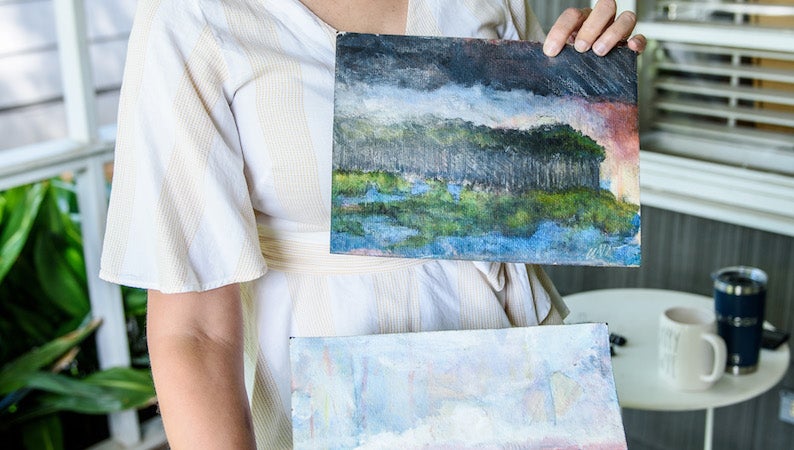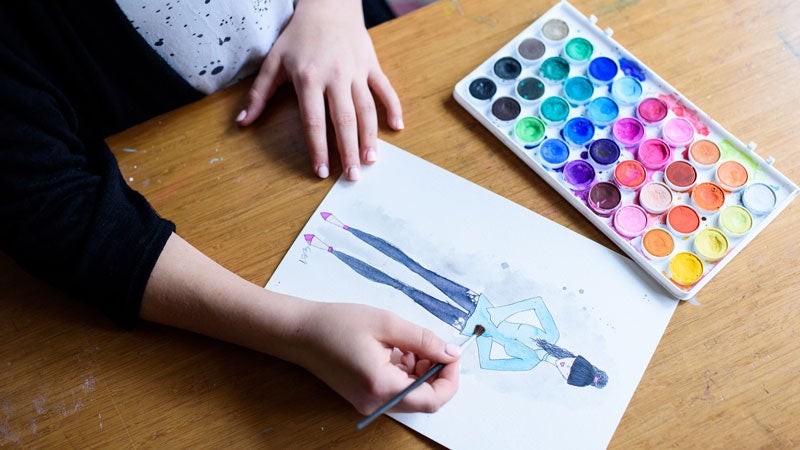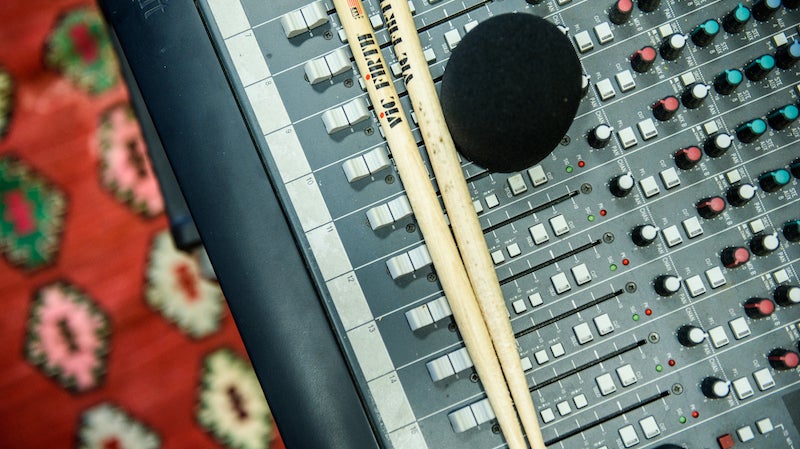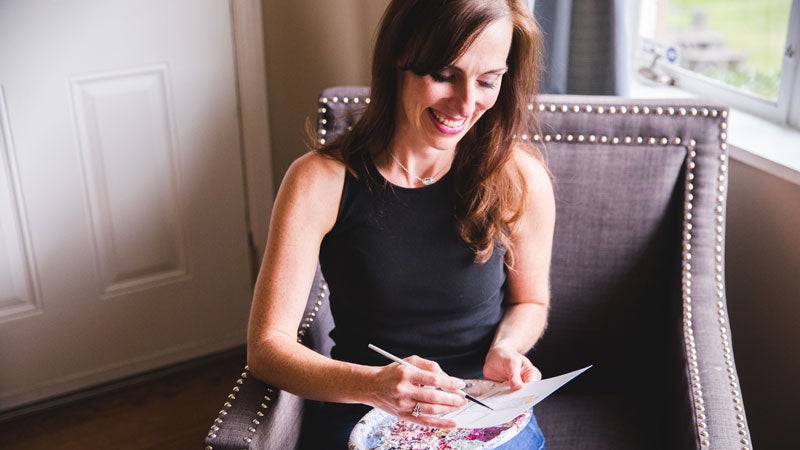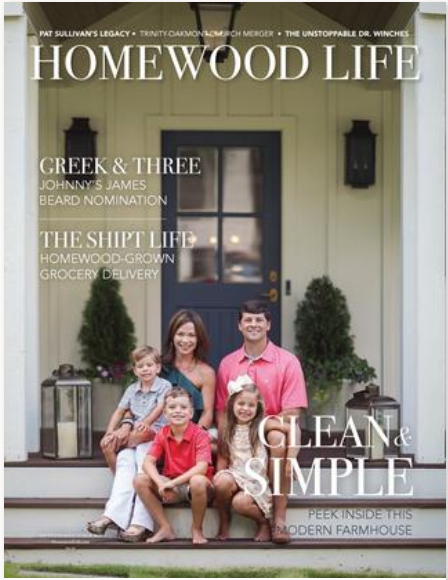By Heather Jones Skaggs
Photos by Wes Frazer, Kyle Carpenter & Patrick Tragesser
If you explore local creeks and streams with Andy Flage, he will show you how two of his hobbies, fly fishing and bladesmithing, are forged into one art to benefit our local waterways.
When Andy and his wife, Dominique, moved to Homewood in 2018 with their children, Henry and Amelia, it did not take long for them to fall in love with the city and the greater Birmingham area. Dominique was finishing up college while Andy was working a day job as a welding inspector when the COVID-19 pandemic shut everything down.
It was during this time that Andy, who is an Athens, Georgia, native, began spending time in local waterways, fly fishing and discovering various local species of fish such as sunfish, bluegill and redeye bass.
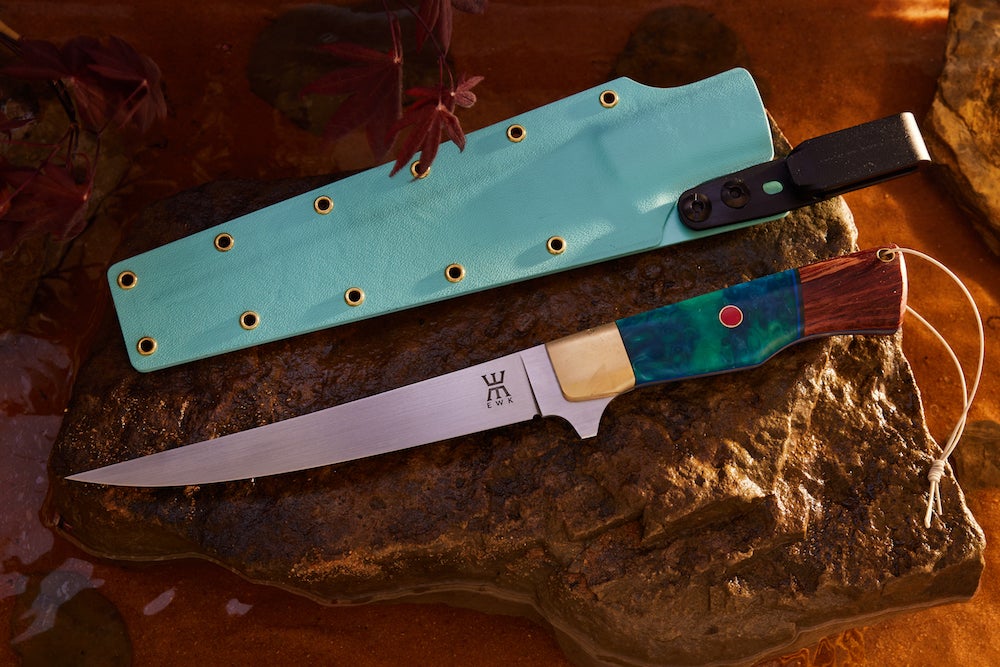
When he wasn’t fishing, he continued to hone his blacksmithing skills, which led him to bladesmithing (knife making). With a background in fine arts and an emphasis in sculpture from the University of Georgia, Andy used that skill to create and sell knives, benefiting local riverkeeper organizations that work to protect the waterways he came to love.
“I know the moment I combined the knife hobby with my fly fishing hobby,” Andy explains. “I was at Watkins Brook picking up trash with my son when I discovered an aluminum hunk of metal. I thought to myself, I could make a knife blade out of this.”
From a hunk of metal to a finely crafted blade, the idea took off, and Edgewood Knives was born.
Each knife Andy designs starts with specific steels. “I choose a few to use that aren’t as common in mass-produced knives. I use CPM154, 01 tool steel, Elmax, Magnacut, 440c, [52100] and various Damascus steel blends (folded steel). Alabama Damascus is a company that provides some Damascus patterns. I make other patterns myself like San Mai 416ss/nickel/52100/nickel/416ss.”
The process of forging, grinding, heat-treating and polishing are extremely tedious. Once the knife blade is complete, the handle is designed.
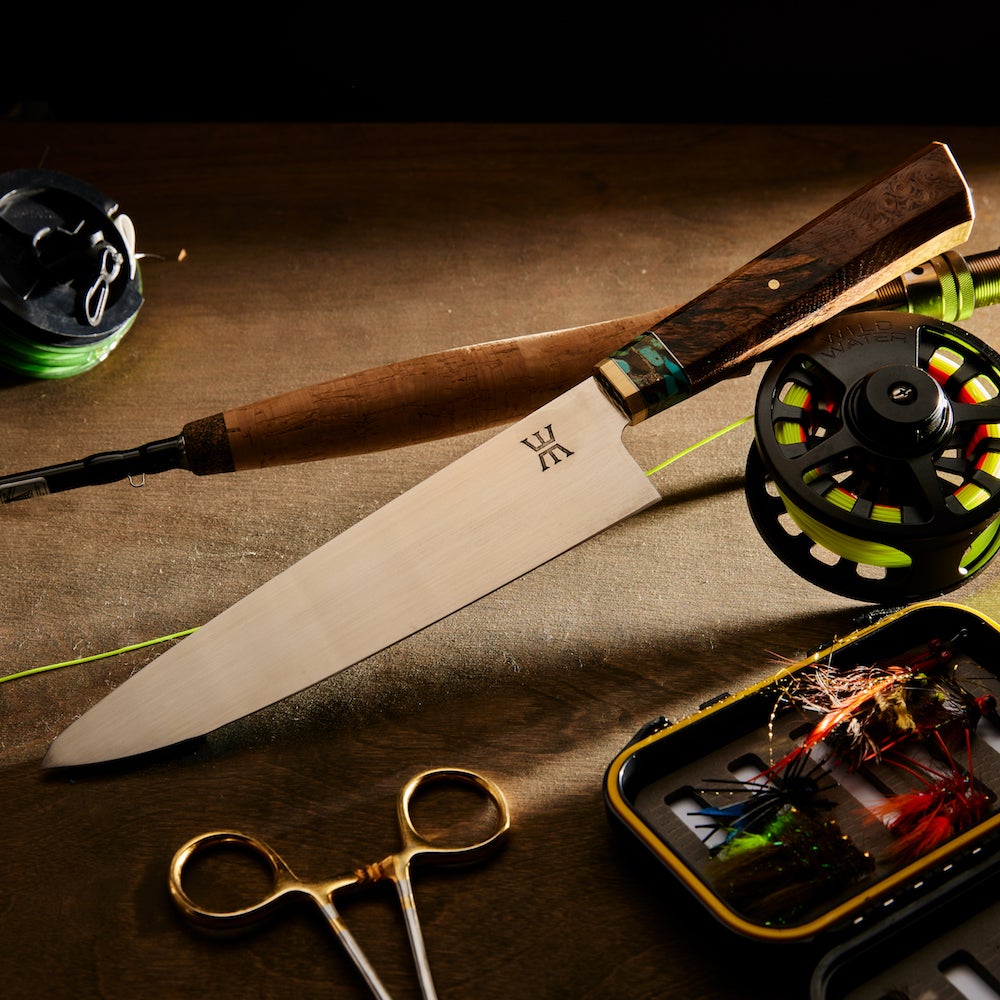
“I consider each knife and the environment it will be used in. My handle material is sourced from recycled or repurposed materials I find locally: fallen trees in the neighborhood, old leather from boots and belts and various other collected materials,” Andy says.
Once the knife is completed, it gets a “birth card” that records the materials used, where they were sourced and its Rockwell Scale hardness – a scale based on the indentation hardness of a material. There are multiple scales to measure hardness. Rockwell (HC or HRC) also has Rockwell scales A, B and C. It is common practice to use Rockwell C when dealing with knife hardness due to the range of hardnesses that bladesmiths encounter and the materials used.
On custom commissioned knives, Andy says he likes to work with clients to meet their needs by using materials they provide or his own. It can take anywhere from 15 to 30 or more hours to create the blade.
On a recent commission for Chef Charlie Layton of Charleston, South Carolina, Andy used black locust from Edgewood Knives’s namesake, Edgewood Boulevard, for the main handle. “Black locust was a lucky find,” he says. “It is a wood known for its durability and resistance to rot.”
Chef Layton found Edgewood Knives through a mutual friend and immediately contacted Andy for his custom set. “Charlie is passionate about his food and craft while also very conscious and considerate about culture and the environment around him,” Andy says. “This was a good match, and we nailed down the blade steel he desired and general knife design.”
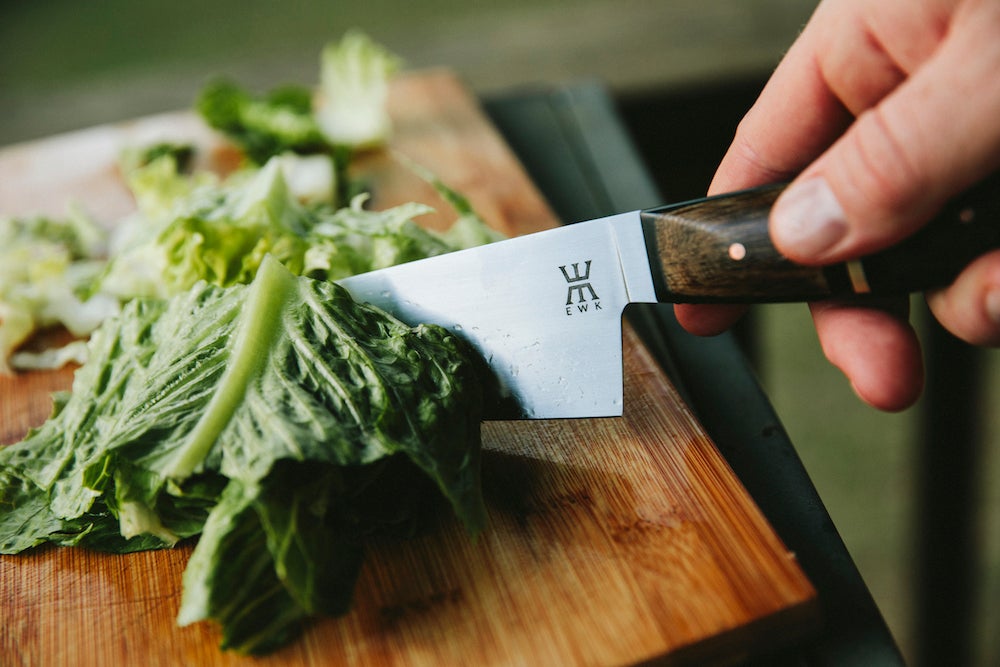
Fitting for a chef, the aluminum spacers in the creation are fashioned from parts of a road sign and a cookie sheet some fly fishermen found in the Cahaba River. “In all, I feel this knife set reflects Edwood Knives’s sentimental approach while also meeting the client’s need with a truly unique knife with a soul,” he explains.
Each knife made is a handcrafted tool and an heirloom at the same time. The creations range anywhere from $150-$900, depending on design and materials. The knives are made to be used and also to stand the test of time, so they can be passed down from generation to generation. To date, Andy says he has raised around $1,075 through his knives for organizations that help preserve local waterways such as Friends of Shades Creek, Cahaba River Society, Cahaba Riverkeeper, Alabama River Alliance, Coosa Riverkeeper and Native Fish Coalition.
“I hope we as a community can do the same to preserve the unique and beautiful natural resources right in our own backyards,” he says.
Follow Edgewood Knives on Instagram @ewkusa, Facebook @Edgewood Knives and visit ewkusa.com to contact Andy and order your custom set today.
Subject Contact: Andy Flage ewkusa@gmail.com


